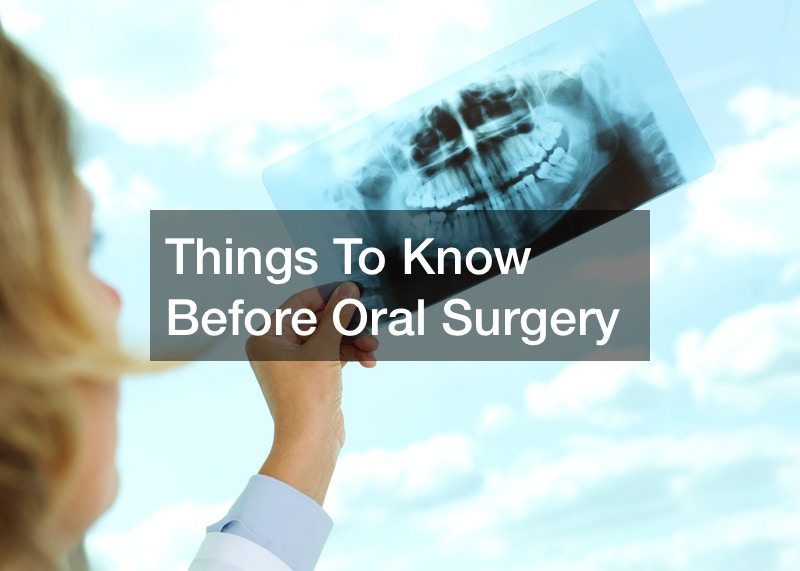
Many people despise the thought of having surgery. However, in some cases, it is absolutely necessary. People do not understand the importance of oral surgery in many cases because they feel like it is just what is going on in your mouth, and a toothache can’t possibly hurt that much. However, the truth is that a toothache can be absolutely debilitating. It can make it so that you cannot focus on anything, and it can hurt so much that you are not able to sleep.
Other than a toothache, there are also other reasons why you might need an oral surgeon. Since as with any other type of surgery, you would want the best surgeon that you can find, you should peruse a list of oral surgeons in your area who are able to conduct the procedure that you need. If you need oral plastic surgery, for example, such as oral surgeon implants, you should find an oral surgeon who specializes in this area. If you are interested in an oral surgeon and dentures, you should find one who has a lot of experience with dentures. Whichever surgeon you find, you want to make sure that the individual has a lot of experience with the procedure that you are having done.
No one wants to have teeth pulled, if they can help it. Americans aged 35 to 44 have at least one missing tooth, and 25% over the age of 74 have lost all of their teeth, according to one estimate.

When Should You Have Tooth Removal Surgery?
Tooth extractions may be necessary for a variety of reasons. We’ll cover the most common below.
- A tooth is badly damaged beyond repair.
- Your teeth are crowded together. Your teeth are crooked because of overcrowding. Orthodontists straighten teeth with braces and other means. Often a tooth or two must be pulled in order to make room for the teeth to be straightened. Sometimes a tooth is impacted (underneath the gum line) and this will require tooth removal surgery.
- An infection. If there is decay at the tooth’s pulp (where the tooth connects to blood vessels and nerves), imbedded bacteria can lead to infection, which is cause for concern, especially for those with a compromised immune system.
- Gum disease. If you have gum disease, called periodontal disease, you may need a tooth extraction. Gum disease can lead to an infection of tissues and bones that support your teeth, which can lead to the need for tooth removal surgery or oral surgery.

Tooth Removal Surgery Preparation
Dentists will typically refer you to an oral surgeon for tooth removal extraction.

Things You Should Tell Your Dentist Before Oral Surgery
You want your dentist and oral surgeon to know of any medical issues or prescriptions that you are taking. These are medical professionals that need to assess your overall health, so that they can perform the needed surgery in the safest manner possible. Give them your complete medical history, plus any medications and supplements you may be taking. You should include vital information, such as if you have…
- congenital heart disease or a pacemaker,
- a compromised immune system,
- liver disease, or
- a history of bleeding.
Your dentist or oral surgeon will give you a consultation so that you can know what to expect. Once your tooth removal surgery is scheduled, he will give you anesthesia and then once the area is sufficiently numbed, he will begin the tooth removal process. Sometimes, in the case of an involved surgery, such as wisdom teeth removal, an impacted canine tooth, or an oral bone graft, you may need to be put to sleep for the duration of the surgery. The surgeon will cut away gum tissue so that the tooth may be removed. There are times when the tooth must be broken into pieces and then removed. The oral surgeon will suture or stitch the opened area together and place cotton or gauze on the affected area to minimize bleeding. The area will clot, but there is always some bleeding after oral surgery.
Following oral surgery, your dentist or oral surgeon will send you home to recover. You often will need a driver because even after you awake, you will be in a semi-sedated state. Recovery usually takes 3 to 4 days. Follow the post-op instructions and take pain medication as prescribed and recommended.
Instructions can include
- changing blood-soaked gauze for fresh ones
- applying an ice pack over the affected area, and
- limiting activity or exercise for a couple of days.
For complete healing, allow one to two weeks. The swelling and pain will be gone and the inside of your mouth will have had time to heal. Your teeth shift over time and this is true after oral surgery. Whenever there is a gap in your teeth your mouth will compensate to “cover” the gap. Sometimes, a bridge, implant, or denture will be used to keep your teeth from excessive shifting.

